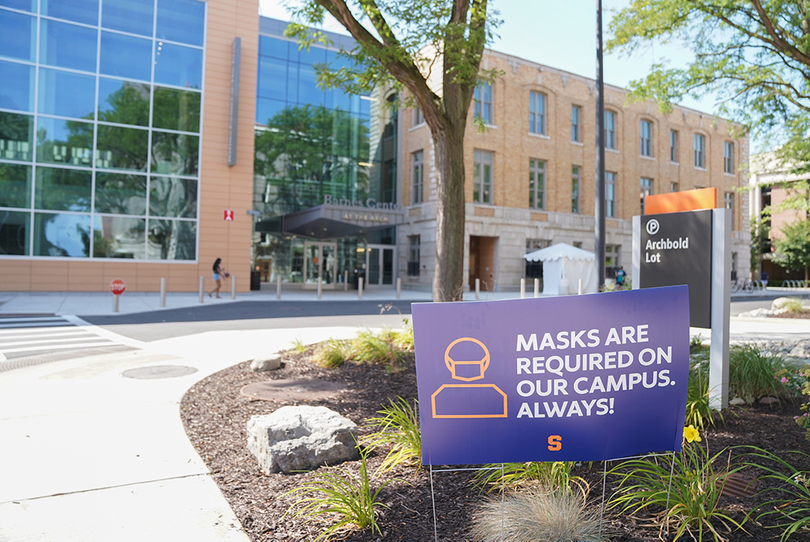Officials concerned after SU reports 42 new COVID-19 cases on Wednesday

On Tuesday, SU moved more students into isolation than was typical of an entire week in the fall semester. Emily Steinberger | Photo Editor
Get the latest Syracuse news delivered right to your inbox.
Subscribe to our newsletter here.
Syracuse University reported 42 new COVID-19 cases among students, faculty and staff in central New York on Wednesday, a significant increase that has the university’s public health officials “extremely concerned.”
Campus surveillance testing has identified a considerable increase in cases over the past several days, indicating a surge of infection that is likely to have stemmed from off-campus parties and gatherings over the weekend, Vice Chancellor Mike Haynie said in a campus-wide email Wednesday.
As of Wednesday afternoon, SU was reporting 134 cases of the virus among students, faculty and staff in central New York. There are 246 students in quarantine.
On Tuesday, SU moved more students into isolation than was typical of an entire week in the fall semester, Haynie said. He warned that, should the pace and scale of infections continue, the university would have no choice but to implement preventative measures to break the chain of transmission among the student population.
In his email, Haynie listed several measures the student body can take to limit the spread of the virus.
Students should continue to wear masks, practice social distancing, avoid traveling outside of central New York and participate in testing and contact tracing procedures “immediately and honestly,” he said. Students should also adhere to all directives from state and local authorities and the university.
“These actions are simple and selfless and keep you and those around you safe,” Haynie said.
Haynie reminded students to get vaccinated as soon as possible. Gov. Andrew Cuomo announced Monday that all New York state residents aged 16 and over will become eligible for the COVID-19 vaccine starting April 6. Haynie said that, in addition to the expanded guidelines, many students are already eligible for the vaccine based on the state’s eligibility requirements.
“Put simply, vaccination is the best protection against the spread of COVID-19,” Haynie said. “A widely vaccinated community safeguards the health, wellness and safety of our students, faculty and staff, and helps our university return to more normal operations.”
Onondaga County occasionally has extra doses of the vaccine available, which are available for signup on the county’s waitlist page, Haynie said.
SU is currently seeking state approval to become a vaccine provider. Until then, securing state and county vaccination appointments, combined with good public health behavior, is the best path towards helping the situation, he said.
Haynie expressed his optimism that the end of the pandemic is in sight but reminded students that the virus still presents a risk to the university.





